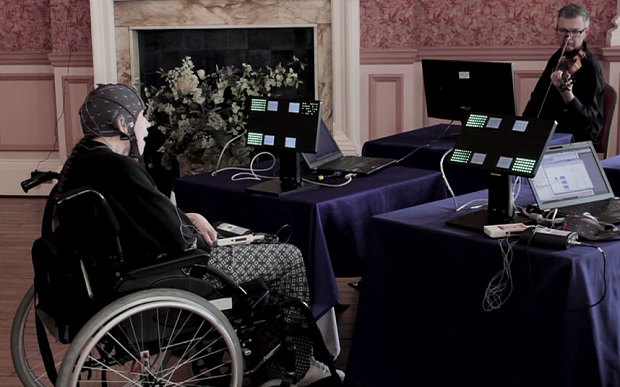The life of professional violinist Rosemary Johnson took a shocking turn for the worse in 1988 when a near-fatal car accident left her comatose for several months.
Emerging from her coma, Johnson was confronted with the devastating news that she would never be able to play music again.With only limited ability to speak and move, Johnson was forced to retire from the Welsh National Orchestra and relinquish her dream of becoming a world class musician.
But entering into 2016, 50 year old Rosemary is again able to compose and perform music using brain-interfacing software. The culmination of a ten year project lead by Plymouth University and the Royal Hospital for Neuro-disability in London, the sophisticated technology bridges the gap between music and the human mind.
Employed in conjunction with an ‘EEG cap’ which reads the electrical information from the human brain, the music is triggered by eye movements and a visual display. The software allows the user to compose, conduct and even alter the tempo of a musical performance.
“The first time we tried with Rosemary we were in tears. We could feel the joy coming from her at being able to make music. It was perfect because she can read music very well and make a very informed choice,” said Professor Eduardo Miranda, Composer and Director of the Interdisciplinary Centre for Computer Music Research at Plymouth University, reflects.
“The great achievement of this project is that it is possible to perform music without being able to actually move. She is essentially controlling another musician to play it for her…It’s not yet possible to read thoughts but we can train people to use brain signals to control things” Miranda adds.
Calling themselves The Paramusical Ensemble, Rosemary and another two patients have been collaborating with a string quartet to compose new music. The ensemble have already recorded a piece of music which will premiered via a live performance at the Peninsula Arts Contemporary Music Festival in Plymouth later this month.
Image: The Telegraph

